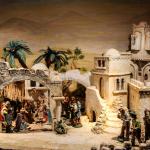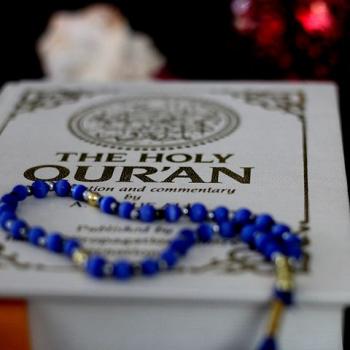 Muslims hold Jesus in high esteem. Some have argued that Isa, as he is referred to in the Qur’an, and by Muslims, is not the same person as Jesus. To be clear, this argument is mostly made by those who have no intention of promoting understanding between Muslims and Christians. But as we will see here, Isa and Jesus are indeed the same person.
Muslims hold Jesus in high esteem. Some have argued that Isa, as he is referred to in the Qur’an, and by Muslims, is not the same person as Jesus. To be clear, this argument is mostly made by those who have no intention of promoting understanding between Muslims and Christians. But as we will see here, Isa and Jesus are indeed the same person.
They argue that many of the Biblical Prophets mentioned in the Qur’an have phonetic closeness to their Biblical, or Anglicized names. For example, Moses (Moshe in Hebrew) is known as Musa, David as Dau’d, Abraham as Ibrahim, Joseph as Yusuf, Mary as Maryam, and so on. But Jesus, or Yeshua in Aramaic don’t sound like Isa.
Let’s go over the literal aspects before showing the historic Isa being one and the same person as Jesus of the Gospels.
Literary Aspects
The four alphabets that make up his name in the Hebrew are “י” (yod) “ש” (shīn) “ו” (vav) and “ע” (a’yin). Put together in Hebrew, they are articulated as “Yeshu’a”. So far so good.
Let’s see the equivalent Arabic letters to those four Hebrew alphabets . Put together, these are يسوع. and are pronounced “Yesū’ “. In fact this is the name used by Biblical Arabs and Arabic translations of the Bible for Jesus. The Arabic translations of the opening verse of the Gospel of Mark and Matthew use “Yesū’ “.
As we all know, Jesus did not speak Hebrew- he spoke Aramaic (or Syriac). Those same four Hebrew alphabets ישוע are vocalized differently and are pronounced “Īshā” or Ishau. In Aramaic, Jesus’ name Ishau is from 4 letters- Yoot, (English=’I’), Sheen (no equivalent letter in English but sounds like ‘sh”), wow (no equivalent in English but sounds like an ‘o” and Ein (no equivalent letter in English)
Thus the Qur’an’s use of “‘Īsā” is much closer to his Aramaic name Isha (or Ishau)-the name he was likely known as when walking on this earth some 2000 years ago.
The Historic Perspectives
Besides the difference in the pronunciation of his name in Arabic vs Aramaic, Hebrew and English, the context clearly shows “‘Īsā” is the same person as Jesus Christ.
- In the Qur’an, Jesus is frequently referred to as “Isa son of Maryam- the Arabic name of Mary. There is no dispute in terms of who Maryam/Mary was.
And We sent, following in their footsteps, Isa the son of Maryam, confirming that which came before him in the Torah; and We gave him the Gospel, in which was guidance and light and confirming that which preceded it of the Torah as guidance and instruction for the righteous. And let the People of the Gospel judge by what Allah has revealed therein. And whoever does not judge by what Allah has revealed—then it is those who are the defiantly disobedient. The Qur’an 5:46-47
- Miraculous birth. Isa, son of Maryam, was born without a father. The annunciation accounts are strikingly similar in the Qur’an and the Gospel of Luke. Additionally, he is the Masiyah, or the Messiah.
Behold! The angels said: ‘O Maryam! Allah gives you glad tidings of a Word from Him: his name will be Christ [masiyah, messiah] Isa, the son of Maryam, held in honor in this world and the Hereafter and of (the company of) those nearest to Allah; He shall speak to the people in childhood and in maturity. And he shall be (of the company) of the righteous. The Qur’an 3:45–46
- Miracles of Jesus mentioned in the Quran
- Jesus’s birth without a father was a miracle. Annunciation accounts in the Quran and the Gospel of Luke are strikingly similar.
- He breathes life into clay and makes it into a bird.
- He cures the lepers.
- He cures the blind.
- He brings the dead back to life.
- Crucifixion. The Qur’an talks about the plots his enemies devised to kill him, leading to the crucifixion and that God raised him to Himself
Despite tremendous respect for Jesus, the Qur’an makes it clear that he is not the son of God. Isa/Jesus is one of the 5 most exalted Prophets in Islam- the other 4 being Noah, Abraham, Moses and Muhammad. One of his nicknames in the Qur’an is Ruh Allah, or the Spirit of God.












